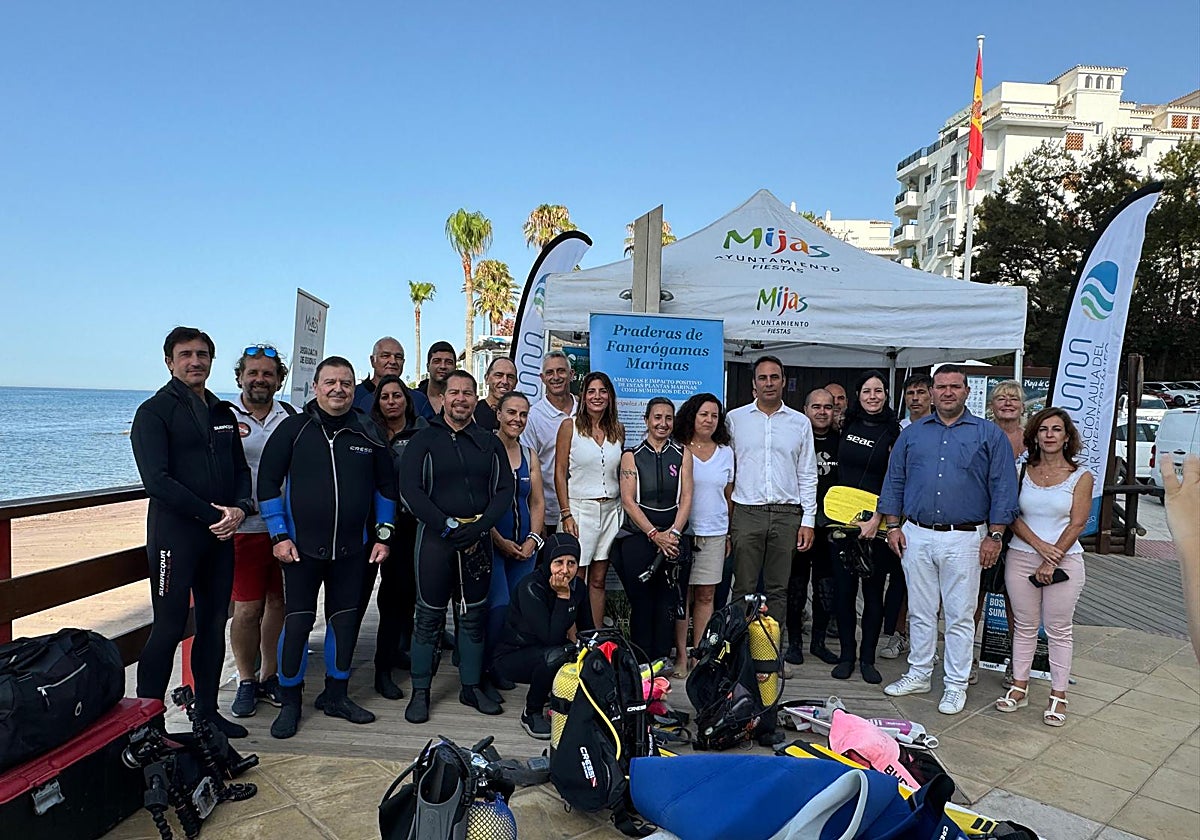New volunteer group to care for the coastline is born on the Costa
Creamar Mijas will hold a training day on Saturday in which the participants will acquire the necessary skills to carry out environmental actions
Lorena Cádiz
Mijas
Thursday, 13 February 2025, 19:52
Within the agreement that Mijas town hall has with the Aula del Mar Mediterráneo foundation (FAMM) to promote the marine protection network (RPM) in the municipality, this Saturday 15 February the Creamar Mijas environmental volunteer group will be formed. For this purpose a training day will be held in which the registered volunteers will acquire the necessary skills to carry out environmental actions in the marine and coastal environment of the municipality.
It should be noted that the RPM is an environmental volunteer platform created and coordinated by FAMM to act in an organised, direct, rapid and effective manner in the face of environmental impacts on the marine environment. The agreement also includes the organisation of environmental awareness campaigns and programmes and actions to restore marine and coastal ecosystems. The RPM follows the guidelines of the United Nations for volunteering and national and regional platforms. It is organised through stewardship and action groups within a specific geographical area, known as Creamar groups.
The agreement states that various actions will be carried out in Mijas, such as a programme for outreach, training, and citizen participation, including the publication of specific informational materials, which will culminate in the organisation of a training day on the unique characteristics of the municipality.
"For us, the care of our seabed and coastline is fundamental, as we have a biodiversity that is of incalculable value. That is why setting up the Creamar group is a great step towards continuing to preserve our coastline and these submerged forests," explained environment councillor Marco Cortés.
During the training day, which will take place on Saturday from 11am to 1pm at the cultural centre in La Cala de Mijas, the aims of FAMM and RPM will be explained. Afterwards, the Creamar Mijas group will be formed and a specific action will be organised: a guided tour of the beach of El Chaparral to focus on marine birds, especially the presence of the Kentish plover; the biodiversity of the breakwater and its threats due to its proximity to human activity; along with special emphasis on Posidonia oceanica, commonly known as Neptune grass, a key feature of the seabed and a priority ecosystem for the protection of the municipality’s coastline.
In order to better understand the environmental challenges of the Mijas coastline, the group will work as a team to analyse the main focuses of attention and define how it can programme volunteer actions in the marine and coastal environment.
"It is great news that from now on Mijas will have a group of environmental volunteers specialised in carrying out direct conservation and restoration actions in the marine and coastal environment. In addition, with the help of continuous training, it will be prepared to act together with the local surveillance services in case of events that may occur", explained FAMM president Juan Antonio López Jaime.
